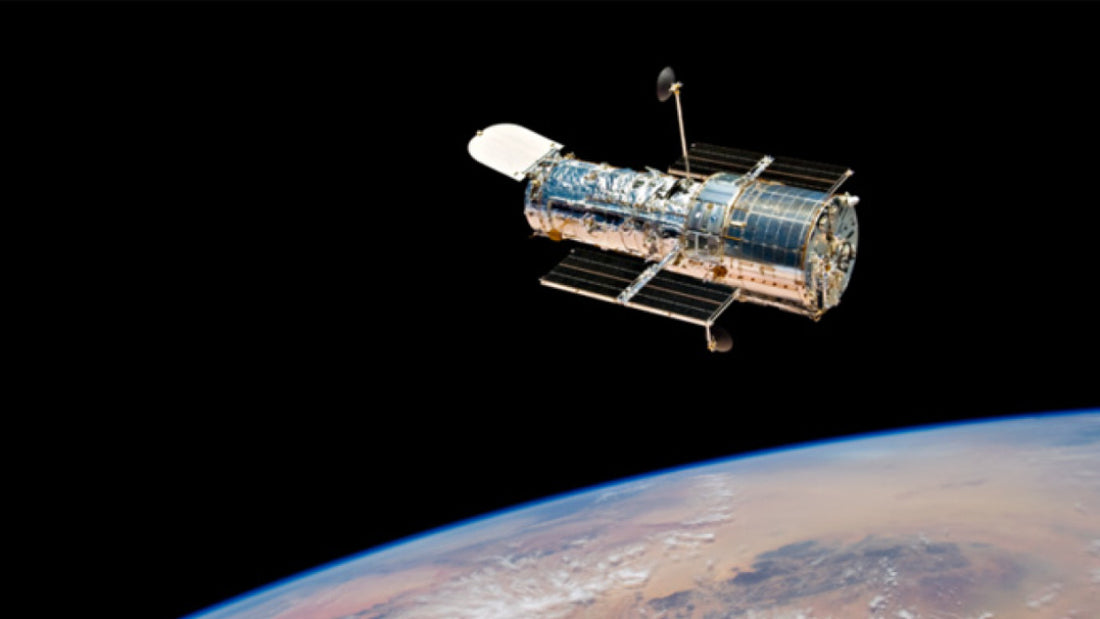
Hubble Rescue Mission Has Unexpected Side Effect
Share
The Hubble Space Telescope, an iconic instrument that has revolutionized our understanding of the universe, is facing the challenge of its aging infrastructure and the growing issue of orbital debris. However, private space startups Momentus and Astroscale have stepped forward with a proposal to extend the telescope's lifetime while also tackling the problem of space debris. This collaborative effort presents an innovative solution that could potentially secure the future of the Hubble Space Telescope.
Synergistic Proposal to NASA
Momentus and Astroscale responded to NASA's request for information regarding the potential reboosting of the Hubble Space Telescope, initiated by SpaceX. While SpaceX's proposal remains under consideration, other companies were invited to present their ideas as well. Recognizing the synergies between their product suites and the requirements of NASA's mission, Momentus CEO John Rood stated that their joint proposal aligns with the agency's objectives.
Experience and Expertise
Astroscale, established in 2013, has already launched the ELSA-d mission, which aimed to test junk capture technology using a simulated piece of debris. Although the mission was temporarily halted due to unforeseen spacecraft conditions, Astroscale is planning to undertake further initiatives in 2024. On the other hand, Momentus, founded in 2017, has conducted multiple successful demonstration flights of its space tug, Vigoride, aboard SpaceX rideshare missions.

The Proposed Solution
The joint proposal by Astroscale and Momentus outlines a plan to use Vigoride, launched on a yet-to-be-determined rocket, to reach the Hubble Space Telescope. Once in space, Vigoride would employ Astroscale technology for rendezvous, proximity operations, and docking with the telescope. The primary objective is to raise Hubble's orbit by 50 kilometers, while also utilizing Vigoride's capabilities to clear orbital debris in the vicinity.
Financial Challenges and Market Conditions
Although the proposal shows great promise, Momentus is facing financial constraints, with a dangerously low cash reserve and significant monthly expenditures. With limited runway available, raising additional funds poses a considerable challenge for the company. Additionally, Momentus received a delisting warning from the Nasdaq in March due to declining share prices. These financial hurdles may need to be overcome for the proposal to move forward successfully.
Hubble's Legacy and Impending Challenges
Since its launch in 1990, the Hubble Space Telescope has delivered groundbreaking research, earning accolades such as a Nobel Prize and contributing to thousands of peer-reviewed papers. However, Hubble's altitude has gradually decreased due to atmospheric drag, leaving it vulnerable to potential reentry by 2037. While no approved rescue mission is in place yet, efforts to extend Hubble's lifetime are being explored under an unfunded Space Act Agreement between NASA and SpaceX.
Private-Public Partnerships and Future Prospects
The collaboration between private space companies like SpaceX, Momentus, and Astroscale demonstrates the potential of private-public partnerships in advancing space exploration and science missions. NASA's exploration of innovative approaches for extending the lifespans of satellites through refueling operations, orbit boosting, and other cost-saving efforts could pave the way for similar initiatives in the future.
Rescue Mission Prospects for Other Telescopes
Aside from Hubble, other telescopes such as the Chandra X-ray Observatory and the Spitzer Space Telescope are also being considered for potential rescue missions. Feasibility studies are underway to determine the viability of servicing these telescopes and extending their lifetimes. These efforts highlight the importance of preserving and maximizing the scientific potential of existing space assets.
In Closing
The collaborative proposal by Momentus and Astroscale to extend the lifespan of the Hubble Space Telescope while addressing the issue of orbital debris presents an innovative and promising solution. Their expertise in space technology and debris mitigation, along with the use of Momentus' space tug, Vigoride, could potentially secure the future of this iconic instrument.
However, financial challenges faced by Momentus, including low cash reserves and declining share prices, pose significant obstacles that need to be overcome for the proposal to progress. Fundraising efforts and financial restructuring will be crucial to ensure the viability of the project.
The Hubble Space Telescope's legacy of groundbreaking research and its invaluable contributions to our understanding of the universe make it a vital asset that deserves preservation. The potential extension of its lifespan, along with the exploration of private-public partnerships, showcases the innovative approaches being pursued in space exploration and science missions.
Furthermore, the consideration of rescue missions for other telescopes, such as the Chandra X-ray Observatory and the Spitzer Space Telescope, highlights the importance of preserving and maximizing the scientific potential of existing space assets. These efforts demonstrate the commitment to advancing our knowledge of the cosmos through the collaborative efforts of space agencies, private companies, and research institutions.
As NASA continues to study the proposals for Hubble's future, it is evident that private-public partnerships and innovative approaches are shaping the future of space exploration. The potential extension of the Hubble Space Telescope's lifespan not only ensures continued scientific discoveries but also sets a precedent for extending the operational lives of other satellites and spacecraft through refueling operations and orbit boosting.
In the ever-evolving landscape of space exploration, it is through bold initiatives like the proposal put forth by Momentus and Astroscale that we can continue to push the boundaries of our understanding and unlock the mysteries of the universe. The collaborative efforts of private companies, government agencies, and scientific institutions hold the key to a future where space exploration and scientific discovery go hand in hand.
You’ve come this far…
Why not venture a little further into A.S.S. - our exclusive Australian Space Society.
And keep thrusting Australia into the deep unknown…
#Space_Aus




